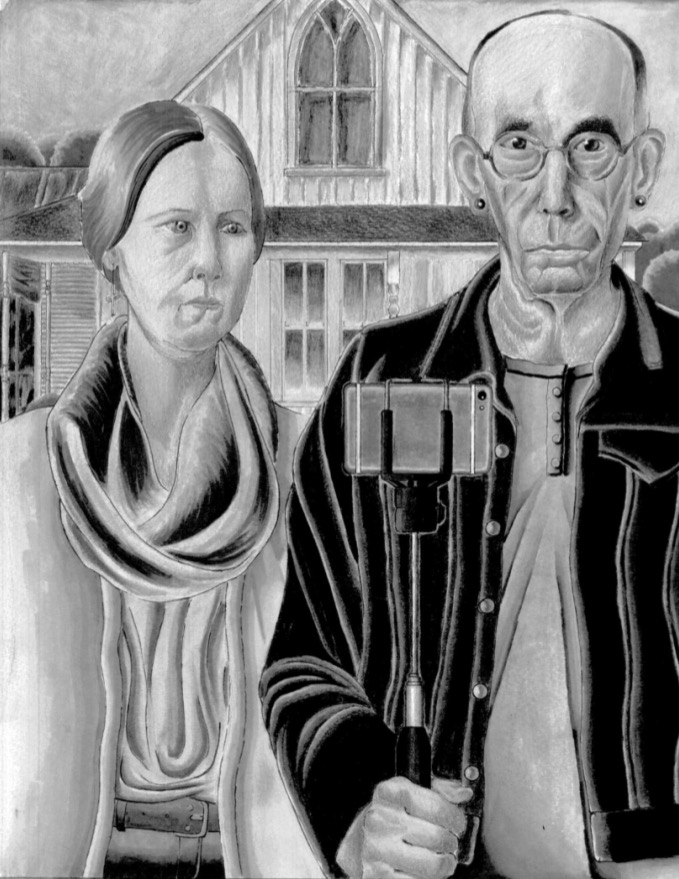Every major television, book and web comic series has a strong and devoted fanbase that eats, sleeps and breathes the series and the characters in it. However, many of these fans can run into legal troubles just because they want to channel their inner creativity to further connect to their beloved characters.
Fanfiction includes stories created by fans which feature characters and themes from a popular literary and/or television series. Some of the most popular series for fanfiction authors include "Harry Potter," "Twilight" and "Steven Universe." Ever since the first published piece of fanfiction was featured in the late 1960s
As the amount of fanfiction being created grew larger, the demand from fans to more easily publish and access other fanfiction led to the creation of fanfiction websites. This made it easy for fans to present their works to each other, and to read and review the works of other fans. Due to the popularity of fanfiction, the original content creators began to take note of the fact that their published works were being altered by others and published with the fan’s name on it rather than the content creators.
The legality of fanfiction falls under copyright law and in the U.S. is classified as a “derivative work.” A derivative work is defined in copyright law as “an expressive creation that includes major copyright-protected elements of an original, previously created first work. The derivative work becomes a second, separate work independent in form from the first.” Legally classifying fanfiction as a derivative work grants fans who write fanfiction the right to do so, as long as their work abides by the copyright laws of the original work and does not breach the doctrine of fair use (allows authors to use verbatim quotes from a work without the need for permission). The issue with this classification is that most fans writing fanfiction do not know how to follow the terms of a derivative work and end up getting sued by the content creators.
Original content creators have always been divided on the idea of fanfiction. Some have even exercised their right as the content owner to sue fanfiction writers for copyright infringement on the basis that the fanfiction does not follow fair use. A notable court case which made it up to the United States District Court was between a Swedish fanfiction writer whose work featured a 76-year-old version of Holden Caulfield from J.D. Salinger’s novel The Catcher In The Rye. The result of this case prevented the fanfiction from being published in the United States due to the fact that it is a direct parody of the original work.
Another fanfiction court case, which had a completely opposite ruling, was between Suntrust and the Houghton Mifflin Company. It addressed the potential copyright infringement in Alice Randall’s "The Wind Done Gone," which is a fanfiction based on the literary classic "Gone With the Wind." The judge in this case ruled that Randall’s fanfiction did not breach any copyright laws; she found it to be a transformative piece because it “provided social benefit by shedding light on an earlier work, and in the process, creating a new one.” This case verified to both content creators as well as fanfiction writers that even reimagined work made by fans can have a substantial social benefit.
Contrary to authors who go so far as to sue their fans for writing stories, some authors actually appreciate and encourage fans to recreate their work and even offer to "canonize," or validate, the fans' creations.
Similar to Sugar, the author of the "Fifty Shades of Grey" trilogy, E.L. James, began writing the first book after seeing the "Twilight" movie and reading the novels. James got so absorbed into the "Twilight" series that she decided to write her own books to act as a sequel to the series, which eventually led to "Fifty Shades."
Another notable author who supports fanfiction is J.K. Rowling, who has said that she is “very flattered by the fact there is such great interest in her "Harry Potter" series and that people take the time to write their own stories.” However, she is also on the side of the authors who are hesitant to support fanfiction. She also said that her concern with fanfiction “would be to make sure that it remains a non-commercial activity to ensure fans are not exploited and it is not being published in the strict sense of traditional print publishing.”
Many content creators are supportive of fans taking the time to express their love for the content and enjoy seeing how their fans are able to reimagine their work. There is still the legal side of copyrighted content that fans always need to keep in mind when creating new fanfictions. Fanfiction allows people to channel their inner creative mind and use their love for a series to create new connections to a creator’s content by making characters that reflect their own attributes. It needs to exist in order to maintain a creative and imaginative society that can work together and combine the ideas of others with their own, so long as they abide by the copyright protection laws or get permission from the original content creators to use their characters and/or stories.








